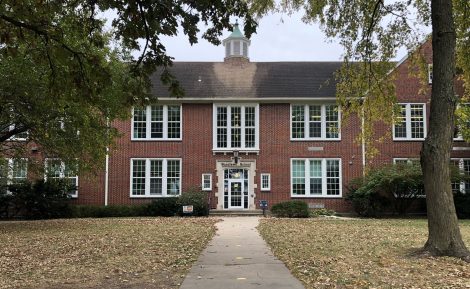Consolidation group to consider taking Lawrence school board input
Volunteer members of a group assigned to figure out a way to close either two or three elementary schools in the next two to three years soon could be consulting their overseers to make sure they’re heading in the right direction.
And that puts them on the right track, two members of the Lawrence school board say.
“I think they ought to report to the board,” said Keith Diaz Moore, a board member and supporter of formal communication between the two groups. “The last thing I want to see is a working group that works in a certain direction that the board would never agree to. That would be futile.”
Adds Rick Ingram, the top vote-getter in the board’s April election: “What he said.”
Diaz Moore and Ingram support the committee approach, an initiative suggested by a member of the Central and East Lawrence Elementary School Consolidation Working Group. Group members met Wednesday to start work on a plan to consolidate six district elementaries into either three or four within two to three years.
Devising such a consolidation plan is the group’s assigned task, with a plan due to the seven-member school board by the end of January.
Chuck Epp, a member of the working group, wants the group to take a fresh approach toward studying options: form a committee of working group members to “communicate” with the school board about its advisory deliberations.
The committee would provide progress reports, seek answers to questions and otherwise ensure that the group’s upcoming months of work would lead to a plan acceptable to board members, the people who ultimately would be responsible for implementing it.
“We may have questions that we’d like to have clarified by the board,” said Epp, a representative from Cordley School, where he has a son enrolled. “We may want to see if a course of action that we’re considering is acceptable to this board.”
The approach would be a departure from the last time the board formed an advisory group to study such weighty issues. Last year, the board formed the Lawrence Elementary School Facility Vision Task Force to develop a “vision and plan” for elementary schools that best reflects “varied community and educational values” while grappling with the “restraints of current and anticipated district resources.”
That group had 25 volunteer members, including two members of the board itself. Both Rich Minder, then board president, and Scott Morgan served as co-chairmen of the task force.
The board accepted the task force’s research and then implemented its recommendations: close Wakarusa Valley School at the end of the 2010-11 school year and pursue consolidation of two or three of the six identified schools within two to three years.
To help ease the transition to fewer elementary schools, the task force recommended that the district should propose a bond issue to finance upgrades or expansions to remaining elementary schools and to even build new ones, if necessary. Consolidation, however, was to be accomplished with or without a bond issue’s passage.
Neither Minder nor Morgan made regular reports to fellow board members about the task force’s progress as the process moved closer to completion. Several board members attended meetings at the end of the eight-month study period, as recommendations were being determined by consensus.
This time around, members of the working group want to be sure they know what they’re getting into as work gets going. Among other suggestions and questions offered during last week’s initial working meeting, to be addressed in the coming weeks:
• How, exactly, will the working group reach consensus on issues? Will there be votes? Mark Kalusha — like Epp, a group member from the Cordley community — suggested using “percentage vote consensus” as a way to document levels of support for future group decisions.
• Should the working group commission a poll to gauge public support for a potential bond issue, and to identify issues that could weaken or strengthen such a bond issue’s chances for approval? That’s a suggestion from Dawn Shew, a group member from the Kennedy community who is married to Douglas County Clerk Jamie Shew, the county’s chief elections officer.
“We need to know what (voters) need to know … to be comfortable with a bond,” Shew said, during the group’s meeting last week. “If consolidation is happening with or without a bond, we’d obviously like to do it with a bond.”
The idea of forming a committee to communicate with the school board is scheduled to be discussed during the next meeting of the working group, set for 7 p.m. to 9 p.m. Sept. 26 at district headquarters, 110 McDonald Drive.
And while Ingram and Diaz Moore intend to attend as many meetings of the working group as possible, they certainly wouldn’t mind having a chance to communicate directly with the group’s membership through a smaller committee.
Those reports would come during regular board meetings, leading up to the meeting in February when board members would be scheduled to accept the working group’s final report.
“They shouldn’t work in isolation from the board,” Diaz Moore said.







